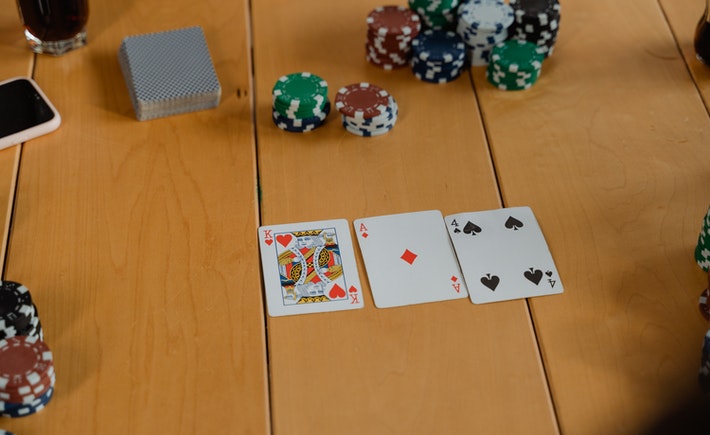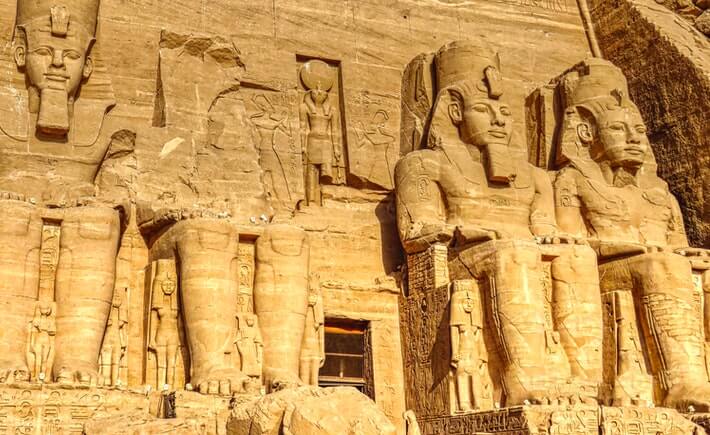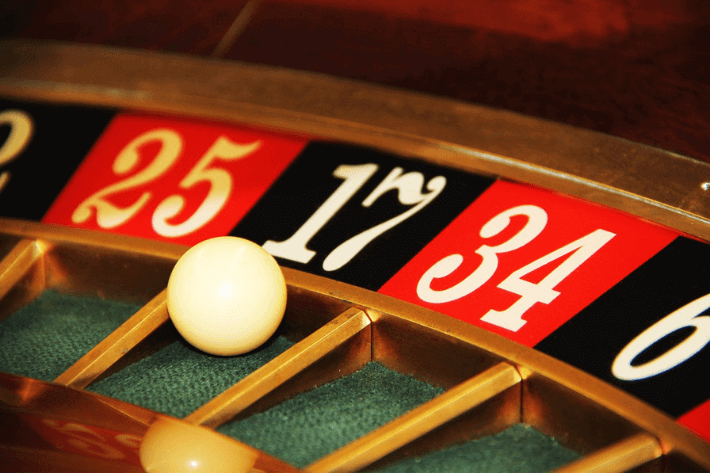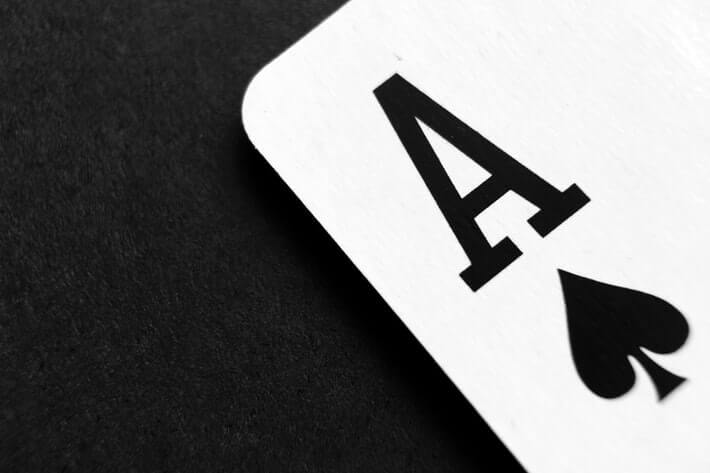Gambling is one of those tales as old as time. The history of gambling is almost as long as ours – games of chance have followed humans throughout history, and archeologists found evidence of it in the most unexpected places. From cave dwellers to King Henry VIII, people have been attempting to lure Lady Luck to their side for as long as they’ve been living and breathing. While some frown upon it, wonder about its morality, or whether it is a problem or not, gambling is undoubtedly here to stay. Let’s see how it came to be such an integral pastime in so many cultures.
When Was Gambling Invented?
Archeologists found many cave paintings representing the early gamblers worldwide. Still, it is difficult to estimate when gambling emerged as an individual activity, as the early forms of gambling were tied heavily to religious rituals and predicting fate. Considering how seemingly ephemeral gambling is, it’s no wonder that this discipline often appears very similar to divination rituals.
Casting objects and interpreting the outcome was a popular way for people to look into the future and, more importantly, gain insight into the gods’ intentions. On a much less divine note, these rituals soon turned out to be an excellent opportunity to play the mathematical odds of specific outcomes for money. It’s safe to say that some of the first forms of gambling were originally part of such practices.
Dice-like objects were found in Egyptian tombs dating back to 1,500 B.C., but whether people used them for gambling or religious purposes is still unknown. The oldest dice found to date, as well as an entire backgammon set, were located in Iran, in the ruins of the so-called “Burnt City.” On the other hand, tiles dating back to 2300 B.C used to play games of chance were found in China. Basically, if we’re asking the question: “Where did gambling originate?” the answer is likely to be “All over.” After all, we also have China to thank for the invention of keno in 200 B.C. and the 9th-century origin of playing cards, but gambling-related objects have been found worldwide, from Japan to the States.
Pinpointing whether people used such paraphernalia for religious purposes or personal gain is challenging. However, many things seem to indicate that gambling was widespread even then.
Gambling in Ancient Times
As you might expect, with ancient history comes ancient gambling. If we travel a bit in time and space and land in ancient Greece, we will hear how Zeus, Hades, and Poseidon split the universe by drawing straws. In the Indian epic “Mahabharata,” gambling started a great war, as one of the five famous King Brothers lost his wife, his kingdom, and his brothers’ kingdom in a bet.
Moving on to the Bible, we find mention of soldiers using a dice toss to decide who gets to keep Christ’s robes after the crucifixion. It is well-documented that Greek soldiers used dice to pass the time, even though these gambling games were forbidden back then. People also found dice in the ruins of Pompeii, and these dice were “loaded” to fall in a certain way.
On another note, back in China, gambling moved well past dice and cards and into tea territory. Contests in tea drinking were incredibly prevalent back in the day, as a less glamorous version of the sophisticated ceremonies we know of today. Crowds, noise, and – of course – betting followed these competitions wherever they appeared.
Throughout the history of gambling in the world, there’s no lack of weird reasons or stakes for betting, and no shortage of big wins, either. Whether man will reach the Moon, or whether someone’s grandson will become the youngest football player for the Welsh national team are some of the most famous ones, but they’re pretty tame compared to everything out there. However, today we’re here to get into how gambling became what it is today.
Europe Lays The Groundwork For Modern Gambling
While playing cards originated in China a long, long time ago, they were nowhere near the sophisticated instruments we’re familiar with today. The first card decks of the kind we know and love originated in Italy in the early 13th century. These cards were both novelty and luxurious items at the time – hand-painted with great attention to detail. Their popularity was indisputable, and they served as the origin of gambling the way we think of it now, especially once cheaper sets of playing cards were created for the general public.
Of course, nearly all of Europe’s history is a history of wars, but wars bring soldiers to previously unknown locations, and soldiers carry cards with them to pass the time. As a result, different gambling games appeared across the continent, as every country’s folk added a unique spin to the rules of playing. Eventually, they reached England, as well, which bore one of the most famous gambling victims, King Henry VIII, who was nearly as bad a gambler as he was a husband.
Henry – also known as the least successful gambler in the UK’s gambling history – lost incredible amounts of money and a plethora of valuable possessions, earning the title of “England’s Number 1 Gambler.”
However, while Italy gave us the cards we play with, the most famous games of today originated in France. Baccarat was a popular game in France in the 14th century, and blackjack appeared in the same country two centuries later. Roulette, as we know it, also originated in France. From there, card games sailed to America together with the first settlers.
Interestingly enough, while all these games appeared in France, the first casino opened back in Italy. It was founded in Venice in 1638 as a separate part of a palace wing, marking the beginning of the gambling industry. It was inaptly named, too – the Italian word “casino” stands for “a little house,” which is in stark contrast with the splendor of this venue, let alone the cavernous spaces casinos take up today.
The Private Room, as it was also known, set the trend which would bring casinos to pop up all around Europe in the following century or two. In the 20th century, casinos moved across the pond to America, where Las Vegas quickly became the place to be if you wish to put your gambling skills to the test.
Before Vegas Came Lottery Crowdfunding
As we know, not all types of gambling are based on cards. For example, lotteries are also games of chance, and they serve multiple purposes. Just like China allegedly used a lottery to fix and expand the Great Wall of China, the US utilized it to win the Revolutionary War, as lotteries bankrolled the Continental Army. Lotteries remained a popular fundraising method throughout the 18th and 19th centuries. However, the States became less welcoming to lottery fundraisers after the Civil War.
If you were wondering: “How long has gambling been around in America?” the answer is – from the beginning. Not only that, but arguably the most famous card game in the world – poker – originated there. Poker can be traced back to New Orleans, 1829. The fan-favorite spread from there, quickly becoming popular with both the North and South throughout the Civil War. Poker also became a staple game played in the Wild West salons throughout the 1870s and 1880s. In 1871, poker moved back across the pond to England, and even Queen Victoria herself asked to be taught the rules.
Poker tournaments first appeared in 1881, although playing for money was obviously a thing long before that. The first event of its kind assembled quite a few celebrities with a longstanding gambling background, including Wyatt Earp and Doc Holliday. However, this tournament was notable for another reason: It was played for almost a decade, all day long, and the buy-in was a whopping $1,000 – just over $26,000 today. When all was said and done, it was estimated that over $10 million changed hands throughout the game.
Gambling, and poker in particular, became a staple in every bar, brothel, saloon, and dedicated gambling house. And once it reached the riverboats, which were run mainly by controversial businessmen, these mobile casinos brought gambling games to pop all over the New World. They often had to stay one step ahead of the law, as in the famous case of the SS Rex, a gambling ship owned by Anthony Cornero in 1938. It was the first cruise ship that took advantage of international waters to provide an enjoyable gambling environment for over 2,000 Californians. Its cruise ended infamously after months of legal back and forth, raids, and similar unpleasantries. During the final raid, the fate of SS Rex was sealed, as Cornero surrendered to the authorities after eight days, simply because he “needed a haircut.”
In the Prohibition era, gambling operations moved underground, but enthusiasts didn’t have to hide for long. Most gambling enthusiasts know the answer to the question: “When did gambling start again in the US?” Even those that don’t know the exact date probably know the location. That’s right – in 1931, Nevada legalized gambling, and gambling houses filled the desert, building up to become the lucky metropolis of Las Vegas. Atlantic City followed some decades later, in 1978, and since then, other states have legalized various forms of gambling, too.
Still, we would be remiss if we didn’t mention that poker’s latest boom came not from the land-based branch of the gambling industry but from the addition of online poker in online casinos to the world’s gambling arsenal.
Casinos are also the home of the one-armed bandits – slot machines. The first machine of this kind was made in 1891 in New York and initially had nothing to do with gambling, if only technically. You used them to get gum and cigars, which explains the fruit symbols – if you won three lemons, you’d get lemon-flavored gum. However, it didn’t take long for these machines to take on the form integral to the world history of gambling.
No Betting in Communism
As gambling developed in the Western world, so its popularity declined in Asia once the biggest countries of the continent adopted communist rule. However, city- and island states such as Macao and Singapore have taken gambling up as one of their main sources of income and became the most luxurious destinations for enthusiastic gamblers.
On the mainland, however, China pioneered most things, including different ways to gamble. Unfortunately, just like they are the world over, all gambling activities were strongly linked with drugs, corruption, and secret societies. This explains why gambling was frequently banned throughout most of China’s history and the history of gambling altogether.
Gambling’s occasional legalization by China’s government can be traced to the profits such activities brought in. After all, legend has it that gambling – keno, to be specific – is what funded the expansion of the Great Wall.
Even though the Chinese government banned gambling, it was never wholly obliterated in the country, and many people turned to the gambling sector to make an unofficial profit. After World War Two, another ban was imposed, leaving Chinese people with the lottery as the only legal means to gamble.
On the other hand, Macao became the place to be, overtaking Vegas as the largest gambling city in the world. It is now one of the gambling industry’s most prominent thriving outposts, netting $28.33 billion in 2015.
In Japan, gambling suffered much the same fate as in China. It was a prevalent activity, and people were prone to gambling on practically everything, from horse races and cricket fights, to fanciful competitions with folding fans and flowers. Still, gambling couldn’t escape its overwhelming bad rep, primarily because it often led to dangerous situations. Many accounts describe the brawls, robberies, and murders that often follow this kind of activity.
Nowadays, Japan has an interesting relationship with gambling games. While the opportunity to place bets on literally everything still exists, it is not nearly as popular as pachinko parlors. These are well-liked in Japan, with many people spending countless hours playing slot-like pachinko machines. While you cannot play to win money, and rewards are mostly cigarettes, electronics, silver, or gold, you can usually find a place nearby that is willing to exchange your winnings for cash.
Circling Back to Europe
Europe hasn’t fallen behind when it comes to gambling and casinos, either. For example, Malta and Monaco have a stellar reputation as the best places to gamble, with the Netherlands, France, and other countries with an extensive history of gambling right on their heels. While not nearly as popular as Vegas or Macao, those looking to test their luck and perhaps become billionaires overnight in Europe have many places to go.
Britain and Malta are iGaming hubs, as well, Malta being the tax haven that it is, and Britain the country to consult if you are looking to open an online casino.
Gambling Moves Online
With the expansion of the internet, gambling also slowly moved online, starting the history of online gambling. The first online gambling website went live in the mid-90s, and while it was a far cry from online casinos we know and love today, it started the trend.
The first gambling platform began operating under the Free Trade and Processing act from Antigua and Barbuda. Some other Central American countries quickly followed suit, offering online licenses for such endeavors. This permit opened a whole new world of online casinos – you can nowadays find everything online, from sports-betting opportunities to slots. One of the most popular countries for obtaining licenses is Curaçao: The island country is integral to the gambling industry, as numerous online casinos now hold its license.
While online casinos were initially designed for desktop computers, there’s a new trend emerging, and many players are ditching desktop gaming for a mobile experience. Most casinos nowadays have an app or at least a well-optimized website that transfers to smaller screens seamlessly.
Responsible Gambling
As online casinos are now practically everywhere, more and more emphasis is put on responsible gambling. Many people are placing bets that they can’t afford to lose, with many more struggling to keep things strictly entertaining.
The idea of responsible gambling is a relatively new addition to the history of gambling in the world. While most of the responsibility for safe fun still lies – perhaps unduly so – with the player, any casino or bookie worth its salt now has some measures in place to prevent gambling harm. Players can now limit the amount they can bet, or the casino does that automatically, even limiting session times. Users can set up cool-off and self-exclusion periods, contact one of the hotlines linked on casino websites, and use other tools to stay out of danger.
Crypto Casinos
As cryptocurrencies became all the rage, casinos quickly integrated them as a payment method, and some are even built entirely on blockchain platforms. This gives them a new layer of security, transparency, and, most importantly, fair-play assurance. The types of gambling crypto casinos promote are the same types found everywhere else, just much easier and quicker to use, with an added level of anonymity that many find appealing.
The trend has just risen, however, so we can bet – get it? – that we have yet to see all the possibilities and further application of this technology in the gambling universe.
The Future of Gambling
With so many different ways to gamble already around and new ones appearing daily, it’s hard to make any predictions about the future, other than that there will definitely be gambling in it. If the history of gambling has taught us anything, it’s that nothing can keep down humanity’s love of taking a chance.
FAQ
What year was gambling first made illegal?
The first note of gambling being illegal stems from ancient Rome, where the penalty for betting was four times the stake being bet. King Henry VIII also established a surprising ban in 1506 in the UK, and all US states banned all forms of gambling by 1910. Of course, it never lasts for long.
Why do people gamble?
Many things can contribute and cause someone to start and continue gambling. Money issues can make gambling seem like a quick source of income, or people just want to try out an exciting game. What keeps people gambling, on the other hand, is the thrill our brains slowly become wired to seek more and more often. The gambling industry makes sure it provides an entertaining atmosphere for its patrons, which often contributes to compulsive gambling.
Is gambling good or bad?
This mostly depends on the reasoning behind gambling. Some people gamble for fun, and others for the thrill. However, the important thing is being able to stop when it is no longer fun. If you can’t do that, gambling quickly becomes a bad idea.
Where was gambling invented?
It is difficult to estimate where gambling was invented, as archeological traces of early gambling have been excavated worldwide. What’s more, most early gambling practices had religious reasons behind them, so it is difficult to estimate where the history of gambling started.








